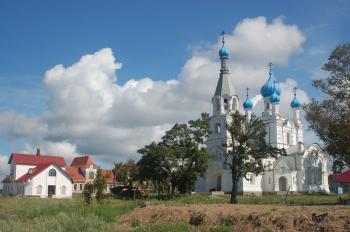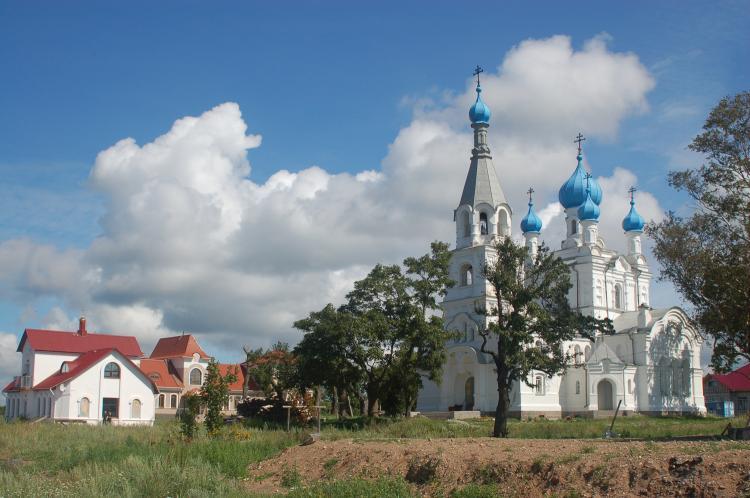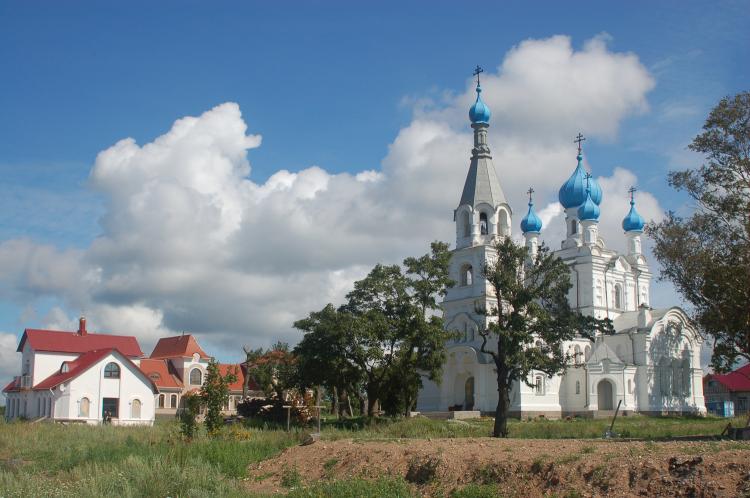VETVENIK, RUSSIA—As Russia opened the doors to 60,000 schools throughout the country for the first day of classes on Sept. 1, Vetvenik, a small village in the Pskov region, embraced a true wonder: a new school that children in the village treat with love and care—like their home.
Vetvenik stands on the Chudskoy Lake, or “Wonder Lake.” The region has a certain unparalleled magic: the lake itself is vast and seems endless, and keeps safe ancestors’ memories of ancient traditions. Big rocks on the bank of the lake may have heard the banging of swords during the Ice Battle in the 13th century.
It may seem that the village should live in unison with the calmness and magnanimity of Chudskoy Lake, but in the few decades under communist rule a lot of things changed: the village church became a granary, people lost their spiritual basis, and alcoholism became a common plague. It would have kept going downhill as in many other Russian villages, but an uncommon event happened: eight years ago a new school, sponsored by the Saint Nicholas monastery, was constructed on Chudskoy Lake. This regional organization has been restoring churches in recent years, and is giving a lot of support to child-development programs. In just half a year a new school was erected in the village. In the past, when one entered the village one would see the lake; now one would also see a two-storied white building with an orange tiled roof.
For a Russian village—many of which are overcome by poverty—this new school is a true wonder, especially since it pays special attention to the restoration of moral values.
The school’s principal says that the main task for this school is to raise the kids in traditional Russian culture and values, to help them return to their roots. However, there is a problem with finding the right teachers, because the task requires tremendous dedication in sharing their knowledge, experience, and values, which would sometimes take working beyond regular hours.
The school curriculum, apart from standard state requirements, also includes folk traditions. In villages where children are often neglected by their parents, and cannot read, write, or count by the time they start school, they need all the love and attention of teachers to not only cope with the curriculum, but also learn what it means to be kind, patient, friendly, and what Russian culture stands on. Often parents go through a process of slowly adjusting their views as well, and start putting more trust and care into their children. Day-to-day activities include regular curriculum classes, like literacy and math, as well as drawing, knitting, hiking, and various field trips. During breaks between the classes, children play traditional Russian folk games. Progress achieved in the first four years is striking, and it’s not just the impressive skills that the children acquire, but the compassion that they learn and will pass on to their own children.
In Russia they say: “Moscow was not built in a day.” That certainly rings true for the re-emergence of traditional Russian culture and values, which in turn, will serve as a solid platform for the society’s longevity and prosperity.



